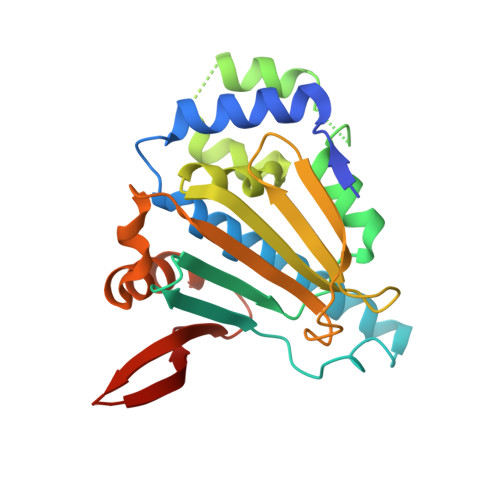Second Generation Grp94-Selective Inhibitors Provide Opportunities for the Inhibition of Metastatic Cancer.
Crowley, V.M., Huard, D.J.E., Lieberman, R.L., Blagg, B.S.J.(2017) Chemistry 23: 15775-15782
- PubMed: 28857290
- DOI: https://doi.org/10.1002/chem.201703398
- Primary Citation of Related Structures:
6AOL, 6AOM - PubMed Abstract:
Glucose regulated protein 94 (Grp94) is the endoplasmic reticulum (ER) resident isoform of the 90 kDa heat shock protein (Hsp90) family and its inhibition represents a promising therapeutic target for the treatment of many diseases. Modification of the first generation cis-amide bioisostere imidazole to alter the angle between the resorcinol ring and the benzyl side chain via cis-amide replacements produced compounds with improved Grp94 affinity and selectivity. Structure-activity relationship studies led to the discovery of compound 30, which exhibits 540 nm affinity and 73-fold selectivity towards Grp94. Grp94 is responsible for the maturation and trafficking of proteins associated with cell signaling and motility, including select integrins. The Grp94-selective inhibitor 30 was shown to exhibit potent anti-migratory effects against multiple aggressive and metastatic cancers.
Organizational Affiliation:
Department of Medicinal Chemistry, The University of Kansas, 1251 Wescoe Hall Dr. Malott 4070, Lawrence, KS, 66045, USA.


















